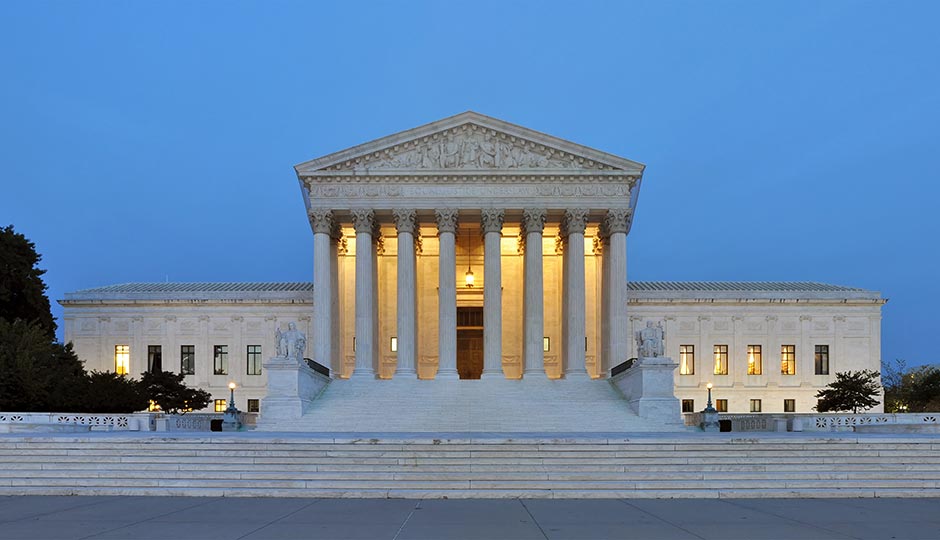Sabrina Vourvoulias is an award-winning columnist with bylines at The Guardian US,AL DÍA News, Tor.com and Strange Horizons. Her novel, Ink, was named one of Latinidad’s Best Books of 2012. Follow her on Twitter @followthelede.
What the SCOTUS Ruling on Police Searches Means for Philadelphia

By Joe Ravi, CC BY-SA 3.0
The U.S. Supreme Court ruled Monday (in the 5-to-3 decision on Utah v. Strieff) that evidence secured by police as the result of an unconstitutional stop may, in fact, be used against a defendant — something that the exclusionary rule has, until now, prevented. Under the exclusionary rule — as we all know from watching Law & Order — the evidence would be “fruit of the poisonous tree” and considered tainted by the illegal stop and search.
But no more. Or at least no more if the police officer can search and find an outstanding warrant on the defendant.
In the titular case, a police officer unlawfully stopped a defendant in Salt Lake City, Utah, then name checked him to find out whether he had an outstanding warrant. When it turned out he did, the officer arrested him, searched him and found that he was carrying drugs.
The question for the Supreme Court really came down to what should weigh more in terms of the evidence collected — the fact that the defendant had an outstanding warrant or the unlawful nature of the stop?
Justice Clarence Thomas (who wrote the majority opinion) and justices Samuel Alito, John Roberts, Anthony Kennedy and Stephen Breyer all agreed that “discovery of the arrest warrant attenuated the connection between the unlawful stop and the evidence seized incident to arrest.”
For David Rudovsky, one of the nation’s leading civil rights and criminal defense attorneys and Senior Fellow at Penn Law, there is now “no downside for the police” in terms of conducting the unconstitutional stops and seizures.
In other words, the Supreme Court just gave the green light for police to engage in fishing expeditions, Rudovsky said.
The outstanding arrest warrant in the case argued by SCOTUS, by the way, was for unpaid traffic fines, and if that doesn’t give you pause, it should.
According to Supreme Court Justice Sonia Sotomayor (who wrote the dissenting opinion) there are more than 7.8 million outstanding warrants on federal and state databases, “the vast majority of which appear to be for minor offenses.” In arguments leading up to the decision Sotomayor had noted that “most of these warrants are automatic. If you don’t pay your fine within a certain amount of days, they’re issued.”
Sotomayor pointed out in her dissent that in municipalities with high poverty rates the number of people with outstanding warrants can be a substantial part of the population. There were 16,000 outstanding warrants out of 21,000 residents in Ferguson, Missouri, in 2015, for example — constituting about 75 percent of the population. The majority of those, as in the Utah v. Strieff case, are warrants for unpaid traffic fines.
It’s not just Ferguson, of course. “Cincinnati recently had more than 100,000 warrants pending for failure to appear in court. New York City has 1.2 million outstanding warrants,” according to this article by the Corpus Christi Caller Times.
Gabriel Roberts, director of communications for the First Judicial District of Pennsylvania, gave me some figures from Philadelphia: “In 2015, 235,478 arrest warrants were issued by the Traffic Division. Of that number 121,299 were closed, which means that 114,179 remained active at the end of 2015.” Roberts also provided the total number of criminal bench warrants that are outstanding as of the end of 2015: 26,422 warrants.
Sotomayor wrote in her dissent, “If the officer discovers a warrant for a fine you forgot to pay, courts will now excuse his illegal stop and will admit into evidence anything he happens to find by searching you after arresting you on the warrant.”
“When we condone officers’ use of these devices without adequate cause, we give them reason to target pedestrians in an arbitrary manner. We also risk treating members of our communities as second-class citizens,” she added.
Sotomayor made it clear in her dissent that African Americans and Latinos, who are racially profiled and stopped more frequently than whites (according to the ACLU, 77.06 percent of pedestrians stopped by police in Philadelphia in 2015 were Black or Latino, 88.96 percent of those frisked were Black or Latino), will be disproportionally impacted by the Supreme Court decision, as will the poor.
There are other potential impacts of the ruling that bear further scrutiny.
“Will police be able to access immigration-related warrants?” asked Erika Almirón, executive director of the South Philly immigration advocacy group Juntos. She isn’t sure what repercussions the SCOTUS ruling might have on undocumented immigrants, but anything that would normalize or justify police “profiling in brown and black communities” is a concern for her.
For his part, Rudovsky thinks the ruling’s impact on undocumented immigrants will “depend on whether local police decide to follow up with immigration officials regarding undocumented persons.”
But no matter what, Rudovsky believes that as far as this ruling is concerned Pennsylvanians are luckier than residents of other states.
“The state constitution has a broader exclusionary rule than the U.S. Supreme Court, and has previously disallowed evidence (from illegal stops),” he said. “If I read the tea leaves correctly, the Pennsylvania courts will diverge (from the SCOTUS ruling) on this.”
As people deeply invested in the well-being of residents of a high-poverty, majority minority city where unconstitutional stops by police are an ongoing concern, we all better hope Rudovsky’s prediction holds true.


